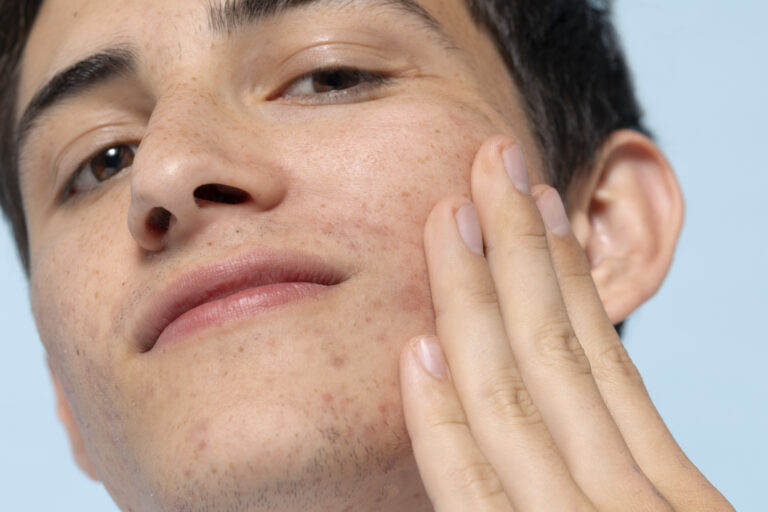Acne is a common skin condition that affects millions of people worldwide, particularly during adolescence but also in adults. Managing acne involves a combination of proper skin care, lifestyle adjustments, and sometimes medical treatment. If you looking for acne treatment then you must try Buy Isotretinoin Online to remove acne
Understanding Acne
Acne occurs when hair follicles become clogged with oil and dead skin cells, leading to the formation of pimples, blackheads, and whiteheads. It can appear on the face, chest, back, and shoulders. Take Accutane For Acne to get acne-free skin. Various factors contribute to acne, including hormonal changes, genetics, diet, stress, and skincare habits.
Effective Tips for Managing Acne
Adopt a Consistent Skincare Routine
A consistent skincare routine is fundamental for managing acne. Here’s a simple routine to follow:
- Cleanse: Use a gentle, non-comedogenic cleanser to remove dirt, oil, and makeup twice a day. Avoid harsh soaps that can strip your skin of its natural oils.
- Tone: Apply a toner to help remove any residual impurities and balance the skin’s pH.
- Moisturize: Use a lightweight, oil-free moisturizer to keep your skin hydrated without clogging pores.
- Sun Protection: Apply a broad-spectrum sunscreen with at least SPF 30 daily, even on cloudy days, to protect your skin from harmful UV rays.
Choose Acne-Friendly Products
When selecting skincare products, look for those labeled “non-comedogenic,” “oil-free,” or “won’t clog pores.” Ingredients like salicylic acid, benzoyl peroxide, and alpha hydroxy acids (AHAs) can be effective in treating acne. However, it’s essential to introduce new products gradually to avoid irritation.
Avoid Overwashing and Scrubbing
Overwashing your face or scrubbing it too harshly can irritate your skin and exacerbate acne. Stick to washing your face twice a day and use your fingertips to apply cleansers gently. Avoid using abrasive scrubs or sponges.
Maintain a Healthy Diet
Diet plays a role in managing acne. Some studies suggest that certain foods can trigger or worsen acne. To promote clearer skin:
- Limit Sugar and Refined Carbs: High-glycemic foods like sugary snacks and refined carbohydrates can spike insulin levels and potentially increase oil production.
- Incorporate Omega-3 Fatty Acids: Foods rich in omega-3s, such as fish, flaxseeds, and walnuts, have anti-inflammatory properties that may help reduce acne.
- Consume Antioxidant-Rich Foods: Fruits and vegetables rich in antioxidants can support skin health and reduce inflammation.
Stay Hydrated
Drinking plenty of water helps flush out toxins and keeps your skin hydrated. Aim for at least eight glasses of water a day to maintain optimal skin health.
Manage Stress
Stress can trigger or worsen acne by increasing the production of hormones like cortisol, which stimulates oil glands. Incorporate stress-reducing activities into your daily routine, such as:
- Exercise: Regular physical activity can help reduce stress and improve blood circulation, benefiting your skin.
- Mindfulness and Meditation: Practices like mindfulness, meditation, and yoga can help manage stress levels.
- Adequate Sleep: Aim for 7-9 hours of quality sleep per night to support overall health and skin regeneration.
Avoid Touching Your Face
Touching your face frequently can transfer bacteria, oil, and dirt from your hands to your skin, potentially causing breakouts. Refrain from picking or squeezing pimples, as this can lead to scarring and further inflammation.
Keep Hair Clean and Off Your Face
Oily hair can contribute to acne, especially along the hairline and forehead. Wash your hair regularly and keep it off your face to reduce the risk of breakouts. Avoid using hair products that contain oils or heavy fragrances.
Use Acne Treatments as Directed
Over-the-counter acne treatments, such as those containing benzoyl peroxide, salicylic acid, or retinoids, can be effective in managing acne. Follow the instructions carefully and be patient, as it can take several weeks to see results. If over-the-counter treatments are not effective, consult a dermatologist for prescription options.
Clean Your Environment
Ensure that items that come into contact with your face, such as pillowcases, towels, and makeup brushes, are clean. Wash pillowcases and towels regularly and sanitize makeup brushes to prevent bacteria buildup.
Consider Professional Treatments
If your acne is severe or persistent, professional treatments can provide significant benefits. Options include:
- Chemical Peels: These treatments use acids to exfoliate the skin and reduce acne lesions.
- Microdermabrasion: A procedure that removes dead skin cells and unclogs pores.
- Laser and Light Therapy: These treatments target bacteria and reduce inflammation.
- Prescription Medications: Dermatologists can prescribe oral or topical medications, such as antibiotics, hormonal treatments, or stronger retinoids, to manage acne.
Be Patient and Consistent
Managing acne requires patience and consistency. It may take time to see significant improvements, and it’s crucial to stick with your skincare routine and treatments. Avoid switching products too frequently, as this can irritate your skin and worsen acne.
Conclusion
Acne can be a frustrating and persistent condition, but with the right approach, it is manageable. Adopting a consistent skincare routine, choosing acne-friendly products, maintaining a healthy diet, managing stress, and considering professional treatments can all contribute to clearer skin. Remember to be patient and consult with a dermatologist if your acne does not improve with over-the-counter treatments. By following these effective tips, you can take control of your acne and achieve healthier, clearer skin.
